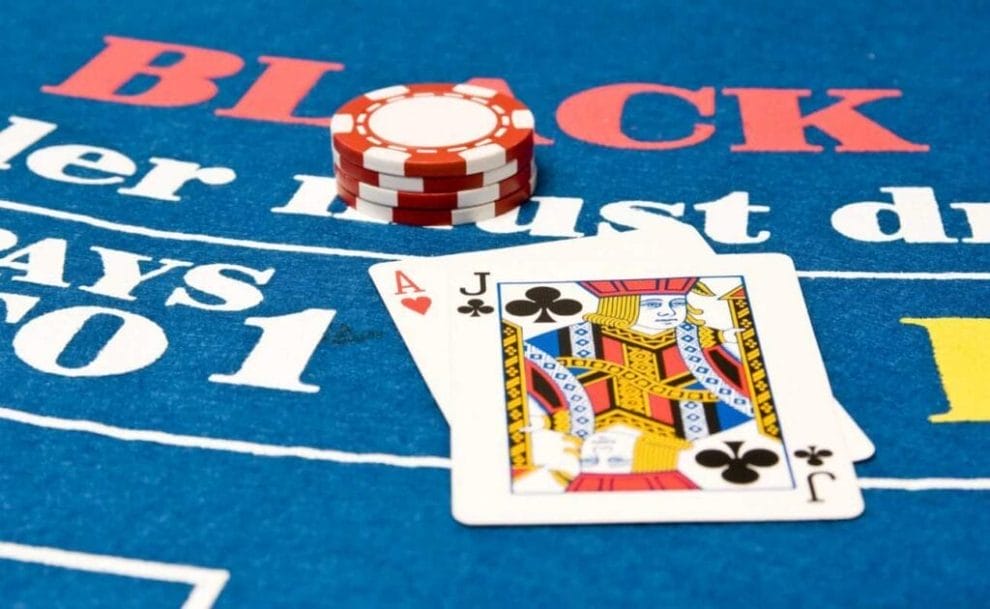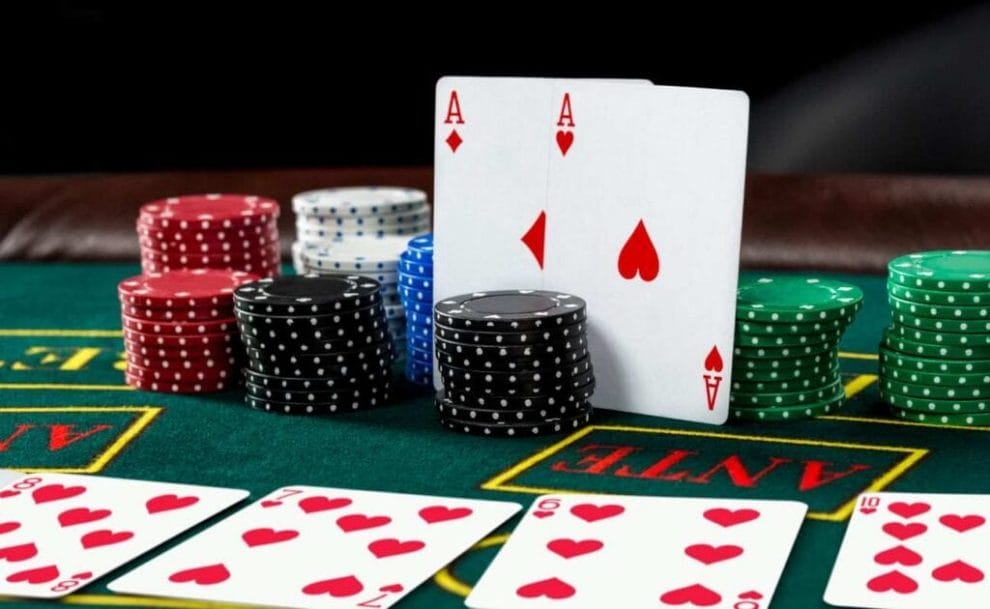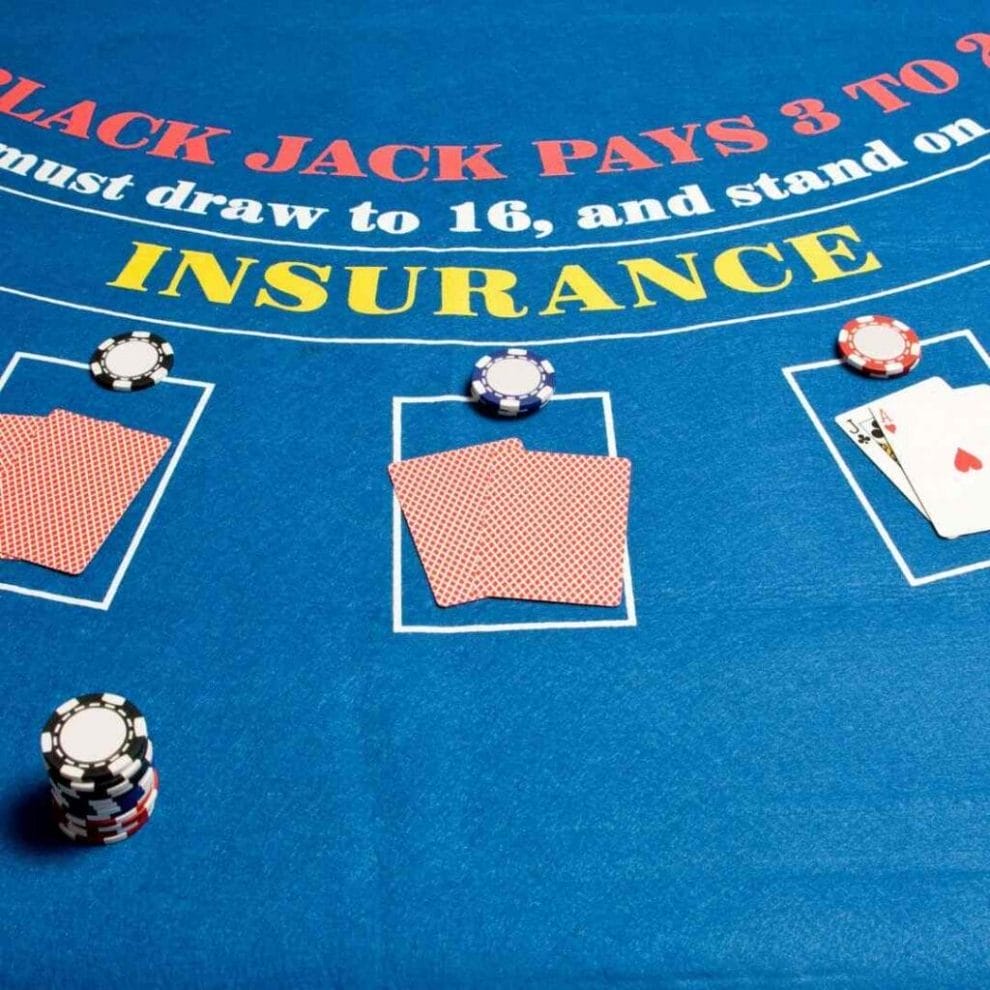
As one of the most popular card games of all time, most casino players have played at least a few hands of blackjack. And thanks to the rise of internet gambling, it’s more accessible than ever.
Compared to some online casino games, it’s simple to play, and the straightforward rules make it ideal for beginners. However, there are still one or two aspects of blackjack that newcomers sometimes find confusing. One of these is the insurance bet, which you’ll learn all about in this guide.
What Is Blackjack Insurance?
Whether you play online blackjack or in a physical casino environment, you must place a bet at the start of each round. With this wager, you’re essentially saying that you’ll beat the dealer’s score without going over 21. If you succeed, you’ll receive a 1-to-1 payout. But if you make a natural blackjack, you’ll be paid 3 to 2.
A blackjack consists of any 10-value card and an ace. In addition to paying a higher rate, it’s usually also an instant win, meaning you’ll receive your winnings on the spot. The only way you won’t win with a blackjack is if the dealer also has one. Like many other casino card games, blackjack offers several interesting wagers alongside the main bet. Insurance is one such side bet you can take to protect yourself against a possible blackjack from the dealer.

How It Works
If the dealer’s face-up card is shown to be an ace, you’ll have the option to take insurance. It costs half your initial bet to play, paying 2 to 1 if the dealer does indeed have a blackjack. This means you’ll break even overall despite losing your initial stake.
Online blackjack games usually work in exactly the same way as tables inside brick-and-mortar casinos. However, with the evolution of playing cards (including card symbols) and gambling games, things can change. A few live dealer casino games, for instance, offer enhanced payouts for making blackjack. On the other hand, some are lower than usual, such as 6 to 5. Always pay attention and ensure you get the best value.
Blackjack Insurance Examples
Here’s an example of winning a blackjack insurance bet:
- You bet $20.
- You’re dealt an 8 and a 10 for a total of 18.
- The dealer’s face-up card is an ace.
- The dealer offers insurance, which you take, costing an extra $10.
- The dealer’s second card is revealed to be a 10, meaning they have a blackjack.
- Your insurance bet wins, returning $30 for a $20 profit.
- The initial bet of $20 is lost.
To further illustrate the process, here’s an example of a losing insurance bet:
- You bet $30.
- You’re dealt a king and a queen.
- The dealer’s upcard is an ace.
- You take the insurance bet for $15.
- The dealer’s second card is a 6, so they do not have a blackjack.
- You lose the $15 insurance bet, but may continue playing to try and beat the dealer.
Blackjack Insurance Odds
Like any move you make in blackjack, you should think carefully about the potential odds before deciding how to proceed. Whenever you take insurance, you’re essentially betting that the dealer will have a blackjack. Therefore, you need to consider the true probability of this happening versus the potential payout.
If the dealer’s upcard is an ace, there’s a maximum 32.65% chance of them having a blackjack. This means you’ll lose the insurance bet the majority of the time. The odds can be lower depending on the number of decks in use, as well as the number of 10-point cards already in play. You can get a better idea of the state of the deck by learning to count cards.
The house edge on the insurance bet is 5.8% for a single-deck game. However, it can be as high as 8.5% when more decks are used. Compared to most table games, blackjack already has a very low house edge. By taking insurance, you’re actually increasing the casino’s overall advantage.
Why You Should Normally Avoid Taking Insurance
The insurance bet looks tempting whenever you see the dealer with an ace, as losing out to a blackjack is incredibly frustrating. However, the odds tell us that this is a bet that doesn’t pay in the long run. The best online blackjack strategy is to avoid insurance, as well as any other side bets.
The insurance bet would need to pay 3 to 1 or higher for it to be worth taking. But at just 2 to 1, there’s a horrible lack of value. So, whether you play casino online or in person, this blackjack bet should be avoided 100% of the time.
Here’s a detailed example to spell out exactly why you should avoid taking insurance:
- You’re playing against the dealer in a single-deck game.
- Your bet is $20, so insurance costs $10 per time.
- Neither of your cards is worth 10, so 16 of the 49 unseen cards have a 10-point value.
- In this hypothetical example, you have the best possible odds of winning.
- We know that the insurance bet wins just 32.65% of the time, losing 67.35%.
- With over 10,000 hands, that’s 3,265 wins to 6,735 losses.
- 3,265 multiplied by the potential $30 return equals $97,950.
- That’s a loss of $2,050 or $20.50 per hand.
When to Take Blackjack Insurance

Statistically, insurance bets lose the majority of the time, and, as the numbers show, it’s a guaranteed losing play. However, some players still choose to use it. The main reason is one of entertainment. After all, playing games at a live dealer online casino is supposed to be more than just an exercise in math.
If you insist on taking insurance, the best time to justify such a play is when you have a hand of 15 or 16. These hands are likely to bust. So, by taking insurance, you can get out of a sticky spot if the dealer reveals a blackjack.
Ideally, you’d surrender in these spots, but not all casinos offer that rule. If you’re playing live dealer blackjack, you can simply ask the game host if surrendering is an option.
Further, the above examples show the best-case scenario, where a single deck is used, and there are no other players at the table. More decks in use means a higher house edge for the insurance bet. Again, if you really want to take insurance, do it in games with a low number of decks in play.
Insurance: A Safe Bet?
Insurance is typically seen as a way to protect your money and avoid losses. While it can serve an entertainment purpose, it will cost you money in the long term. Armed with this knowledge, register with Borgata Online and enjoy a wide range of casino games, including blackjack.
